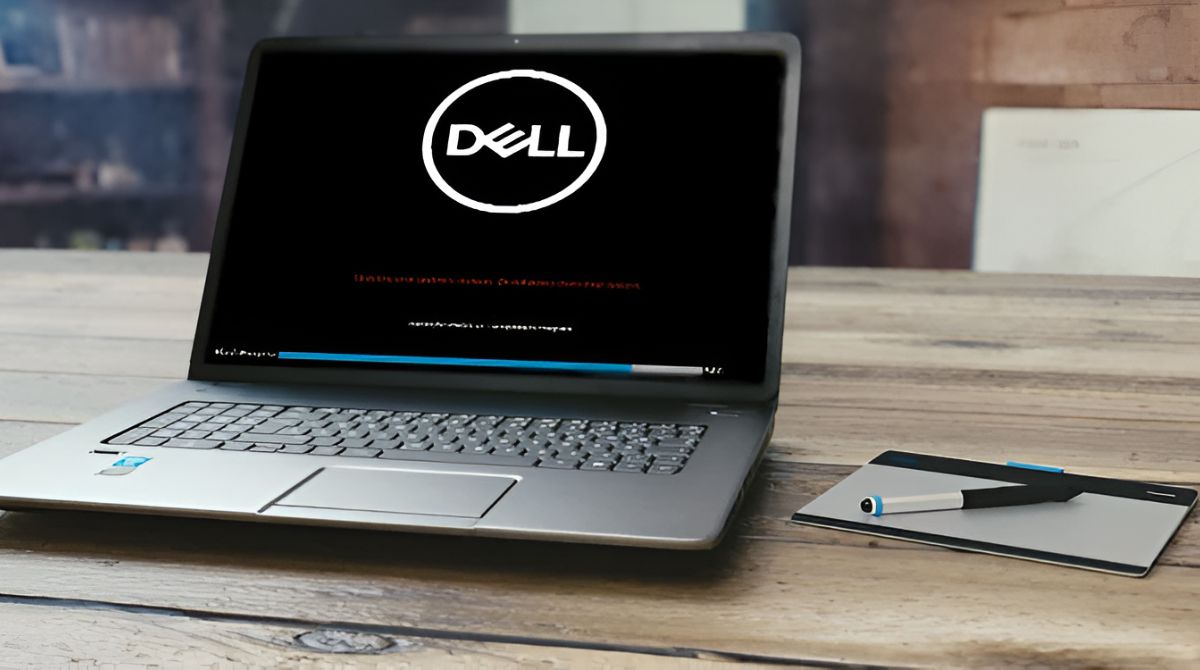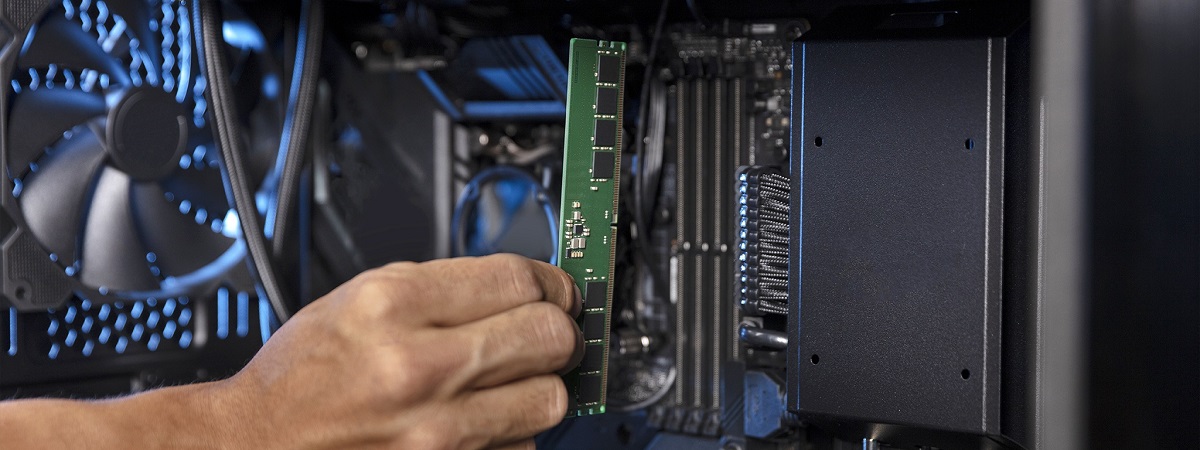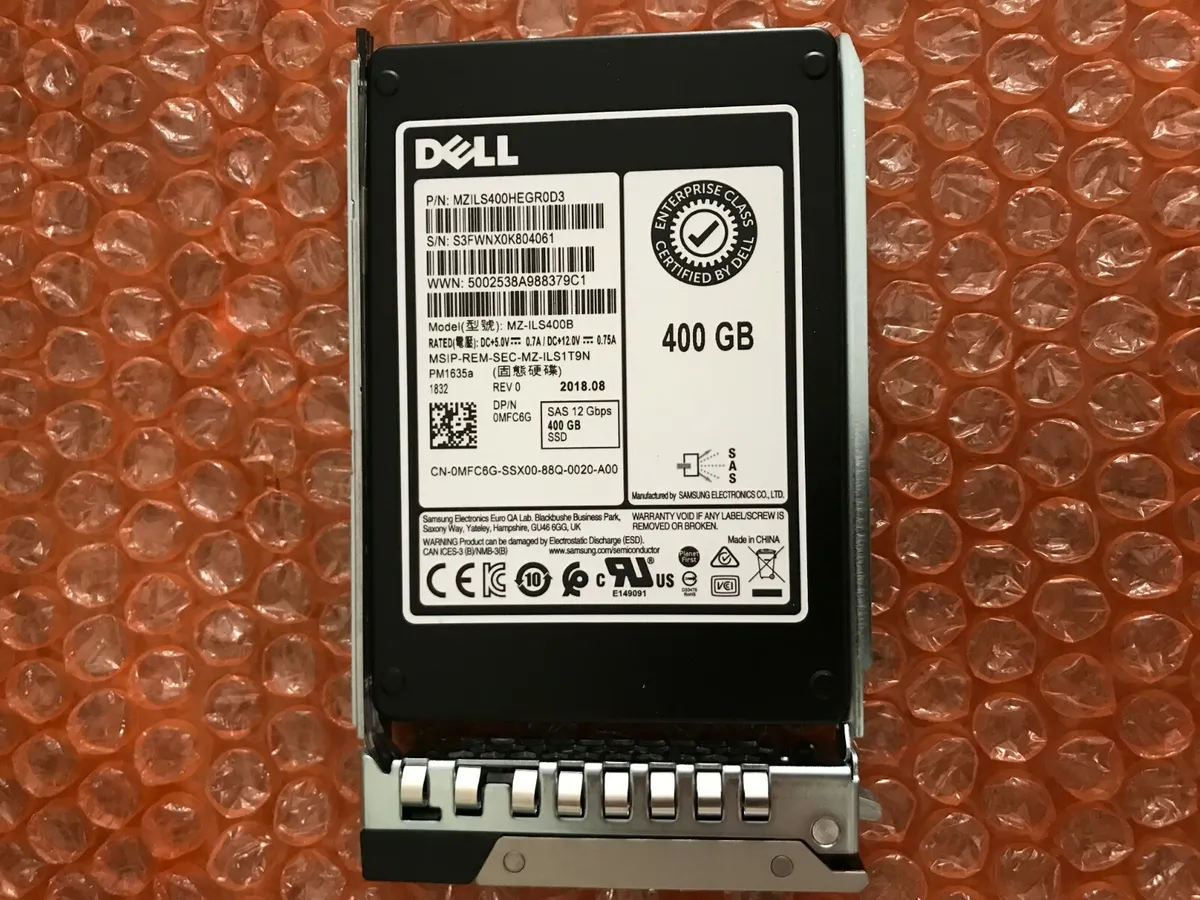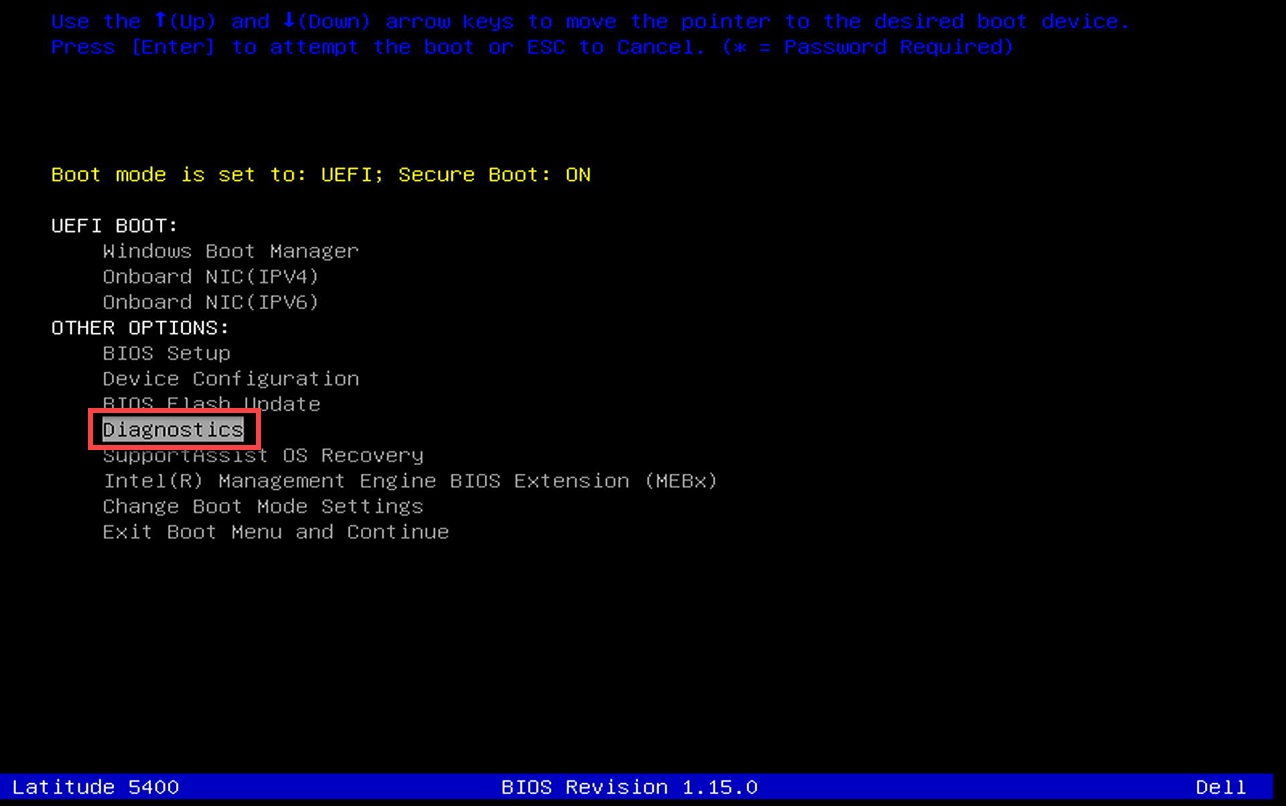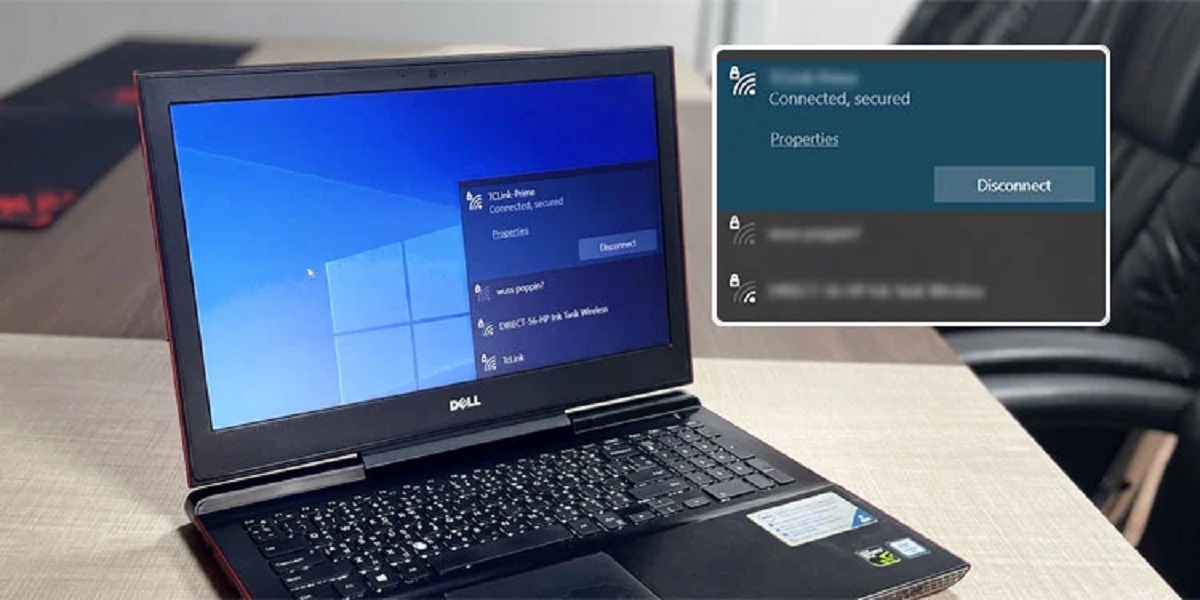Introduction
Dell Computers has established itself as one of the leading technology companies in the world. Its innovative products, commitment to quality, and wide range of offerings have made it a trusted name among consumers and businesses alike. In this article, we will delve into the ownership structure of Dell Inc., shedding light on who owns the company and how its ownership has evolved over the years.
Understanding the ownership of Dell Inc. is important because it provides insight into the decision-making processes and strategic direction of the company. Moreover, knowing the major shareholders of Dell Inc. helps us understand the level of influence they have in shaping the company’s future.
To comprehend the ownership structure of Dell Inc., it is crucial to explore its history and the founding of the company. By examining the journey of Dell Computers from its humble beginnings to its current status, we can gain a deeper appreciation for the factors that have shaped its ownership.
Additionally, we will examine the ownership stake of Michael Dell, the founder and former CEO of Dell Computers. Michael Dell’s contribution to the company’s success cannot be overstated, and understanding his ownership interest will illuminate his role in the decision-making process and overall direction of Dell Inc.
Furthermore, we will explore other major shareholders of Dell Inc., identifying prominent individuals or entities with significant ownership stakes. This will provide a comprehensive view of the diverse range of stakeholders involved in the company.
We will also delve into Dell Inc.’s acquisition by private equity firms, a significant event that altered the ownership landscape of the company. Understanding the impact of these acquisitions will provide further insights into Dell Inc.’s ownership structure.
Finally, we will analyze the current ownership of Dell Inc., presenting a clear picture of who owns the company in its present state. By examining the ownership structure, we can gain a better understanding of the dynamics and power dynamics at play within the organization.
This exploration of Dell Inc.’s ownership structure aims to provide a comprehensive understanding of who owns the company and the potential implications for its future. By gaining insights into the ownership landscape, we can establish a solid foundation for further analysis and discussions regarding Dell Inc.’s strategic decisions and overall performance.
History of Dell Computers
The history of Dell Computers is a testament to the vision and entrepreneurial spirit of its founder, Michael Dell. The company was founded in 1984, when Michael Dell, a college student at the University of Texas, started selling computer upgrades from his dormitory room.
From its humble beginnings, Dell quickly gained a reputation for providing high-quality, customizable computers directly to customers. This direct-to-consumer model allowed Dell to bypass traditional retail channels and offer competitive prices to its customers. It was this innovative business approach that set Dell apart from its competitors and propelled its rapid growth in the computer industry.
In the 1990s, Dell Computers continued its upward trajectory, expanding its product line to include servers, workstations, and storage devices. The company’s commitment to customer satisfaction, coupled with its efficient supply chain management, further solidified its position as a leading technology provider.
As the demand for computers grew, Dell seized the opportunity to establish a global presence. The company opened manufacturing facilities and sales offices around the world, allowing it to serve customers in various countries and regions. By embracing globalization, Dell was able to tap into new markets and cater to the diverse needs of its international customer base.
However, the early 2000s presented challenges for Dell as the competitive landscape in the computer industry intensified. The rise of competitors offering cheaper alternatives and the shift towards mobile devices posed a significant threat to Dell’s market dominance. To adapt to the changing market dynamics, the company diversified its product portfolio and embraced acquisitions to expand its offerings.
Despite these challenges, Dell remained steadfast in its commitment to innovation. The company continued to develop cutting-edge technologies and solutions, catering to both individual consumers and large enterprise customers. This focus on delivering innovative products and exceptional customer service allowed Dell to regain its competitive edge and regain market share.
In recent years, Dell Computers has undergone significant transformations. The company announced its intention to go private in 2013, with the help of a management-led buyout. This move was aimed at reshaping the company’s strategies and operations, allowing it to focus on long-term growth rather than meeting short-term financial expectations.
Since then, Dell has continued to make strategic acquisitions and partnerships to diversify its offerings and expand its reach in emerging technologies such as cloud computing, artificial intelligence, and cybersecurity. These efforts have positioned Dell as a key player in the ever-evolving technology landscape.
The history of Dell Computers is a testament to the resilience and adaptability of the company. From its humble beginnings as a dorm room startup to its current position as a global technology leader, Dell’s commitment to innovation and customer satisfaction has been at the core of its success.
Founding of Dell Inc.
The founding of Dell Inc. can be traced back to the entrepreneurial drive and innovative mindset of Michael Dell. In 1984, while pursuing his studies at the University of Texas, Michael Dell identified a gap in the computer market and decided to start his own company, originally named “PC’s Limited.”
Michael Dell recognized that traditional computer retailers were not meeting the needs of consumers. They were offering limited customization options, high prices, and long delivery times. With his vision to provide personalized computers directly to customers, Michael Dell started selling computer upgrades from his dorm room, cutting out the middlemen.
This direct-to-consumer model proved to be a game-changer. It allowed customers to design their own computer systems by choosing the components they desired, providing them with more control and flexibility. By selling directly, Dell was able to minimize costs and offer competitive prices to its customers, disrupting the traditional retail market.
In the early days, Dell’s operations revolved around assembling computers based on customer orders. This made it possible to customize and deliver systems quickly, setting Dell apart from its competitors. The company’s commitment to quality control and customer satisfaction helped build a strong reputation for reliability and excellent customer service.
In 1988, recognizing the potential for growth and expansion, the company was officially renamed “Dell Computer Corporation.” Dell’s commitment to innovation was evident in its product offerings. The company introduced the industry’s first notebook computer, the Dell 316LT, in 1989, and continued to release a series of successful desktop and laptop models over the years.
By the 1990s, Dell had emerged as one of the top computer manufacturers in the world. The company’s success can be attributed to its unique business model, which emphasized direct sales, efficient supply chain management, and a focus on customer needs. Dell’s relentless pursuit of innovation also played a vital role in its growth and market dominance.
The founding of Dell Inc. marked a turning point in the computer industry. Michael Dell’s vision and determination paved the way for a new approach to computer manufacturing and sales. His focus on customer-centricity and efficiency set the foundation for Dell’s future success, enabling the company to become a global leader in technology solutions.
Overall, the founding of Dell Inc. serves as a remarkable example of how an innovative idea, combined with strategic execution, can disrupt an industry and propel a company to significant heights. Michael Dell’s entrepreneurial spirit and commitment to delivering personalized technology solutions laid the groundwork for the company’s continued growth and success in the years to come.
Ownership Structure of Dell Inc.
Understanding the ownership structure of Dell Inc. provides valuable insights into the decision-making processes and power dynamics within the company. As of the most recent available information, Dell Inc. is a privately held company, having undergone a significant ownership change in 2013.
Prior to 2013, Dell Inc. was a publicly traded company, listed on the NASDAQ stock exchange. However, in an effort to reshape the company’s strategies and operations, founder Michael Dell, along with private equity firm Silver Lake Partners, orchestrated a management-led buyout to take the company private. This move allowed Dell Inc. to focus on long-term growth rather than answering to short-term financial expectations from public investors.
Under the new ownership structure, the majority ownership of Dell Inc. is held by Michael Dell and Silver Lake Partners. Michael Dell, as the founder and former CEO of the company, has a substantial ownership stake, giving him significant influence over the company’s direction. This allows him to actively participate in the decision-making process and shape the strategic vision of Dell Inc.
In addition to Michael Dell and Silver Lake Partners, there are other stakeholders who hold ownership positions in Dell Inc. These include several institutional investors, such as pension funds, asset management firms, and sovereign wealth funds. While their individual ownership stakes may not be as substantial as Michael Dell’s, their presence as shareholders represents a diverse range of interests and perspectives within the company.
It is worth noting that since Dell Inc. is a privately held company, specific details about the ownership structure and individual ownership stakes may not be publicly disclosed. As private companies are not required to file regular reports with regulatory authorities, the precise ownership distribution may not be readily available to the public.
The shift in ownership structure to a privately held company has allowed Dell Inc. to operate with more flexibility and focus on long-term goals without the pressures of quarterly earnings guidance. This shift in ownership aligns with Dell Inc.’s strategic ambitions to diversify its offerings and expand into emerging technologies, such as cloud computing and cybersecurity.
In summary, the ownership structure of Dell Inc. is primarily held by Michael Dell and private equity firm Silver Lake Partners. Their ownership stakes provide them with substantial influence over the company’s strategic direction. Furthermore, other institutional investors also hold ownership positions, representing a diverse range of stakeholders within the company. The shift to private ownership has facilitated Dell Inc.’s ability to focus on long-term growth and pursue strategic opportunities in the ever-evolving technology industry.
Michael Dell’s Ownership Stake
Michael Dell, the founder and former CEO of Dell Inc., holds a significant ownership stake in the company. As one of the driving forces behind the success of Dell Computers, his ownership stake reflects his deep-rooted commitment and long-term vision for the company.
Prior to the management-led buyout in 2013, Michael Dell held a substantial ownership stake in Dell Inc. After the buyout, he continued to maintain a significant ownership position in the company. While the specific percentage of his ownership stake may not be publicly disclosed, it is widely known that his ownership interest grants him substantial influence over the company’s direction and decision-making processes.
Michael Dell’s ownership stake provides him with the ability to actively participate in key strategic decisions and shape the future of Dell Inc. His extensive industry knowledge and entrepreneurial expertise make him an invaluable asset to the company. As a founder, he has been instrumental in driving innovation and successfully navigating the constantly evolving technology landscape.
Furthermore, Michael Dell’s ownership stake demonstrates his long-term commitment to the company’s success. By holding a significant ownership position, he is personally invested in the growth and profitability of Dell Inc. This alignment of interests fosters a sense of responsibility and accountability, ensuring that decisions made by the company are in the best interest of its stakeholders.
Michael Dell’s influence goes beyond his ownership stake. He has played a pivotal role in the company’s strategic transformation, including the shift towards a private ownership structure. His leadership and vision have guided Dell Inc. through various challenges and opportunities, allowing the company to adapt and thrive in an ever-changing industry.
In addition to his ownership stake in Dell Inc., Michael Dell has also distinguished himself as a respected industry leader and philanthropist. Through his investment firm, MSD Capital, he has diversified his holdings and contributed to numerous charitable causes. His philanthropic initiatives reflect his commitment to making a positive impact on society beyond the realm of business.
In summary, Michael Dell’s ownership stake in Dell Inc. demonstrates his deep-rooted commitment and long-term vision for the company. His substantial ownership position grants him significant influence over the strategic direction and decision-making processes within Dell Inc. As a founder and industry leader, Michael Dell’s ownership stake reflects his dedication to the company’s success and his ongoing contribution to the technology industry as a whole.
Other Major Shareholders of Dell Inc.
Aside from Michael Dell, there are other major shareholders who hold significant ownership stakes in Dell Inc. These shareholders represent a diverse range of interests and contribute to the overall ownership structure and governance of the company.
While specific details about the individual ownership stakes may not be publicly available due to Dell Inc.’s private ownership status, it is known that several institutional investors hold significant positions in the company. These institutional investors include pension funds, asset management firms, and sovereign wealth funds.
Pension funds are among the major shareholders of Dell Inc. These funds manage retirement funds for public and private sector employees and invest a portion of these funds in various companies, including Dell Inc. Their ownership stakes reflect their long-term investment strategies and the desire to generate favorable returns for their beneficiaries.
Asset management firms, which manage investment portfolios on behalf of their clients, also hold substantial ownership positions in Dell Inc. These firms include both large institutional investors and smaller boutique firms. Their ownership stakes demonstrate their confidence in the future prospects and growth potential of Dell Inc.
Additionally, sovereign wealth funds, which are owned and operated by national governments, may also have significant ownership stakes in Dell Inc. These funds invest on behalf of their nations and aim to generate returns to support their economies. Their ownership reflects their confidence in Dell Inc.’s long-term potential and aligns with their investment objectives.
The presence of these major shareholders in Dell Inc. adds depth and diversity to the ownership structure. Their investment and involvement in the company demonstrate a collective belief in Dell Inc.’s potential for success and provide a broad range of perspectives in shaping the company’s future.
While specific details about the individual shareholders and their ownership stakes are not publicly disclosed, the presence of these major institutional investors contributes to the stability and overall governance of Dell Inc. Their involvement ensures a diverse pool of expertise and resources to support the company’s strategic decisions and long-term growth.
In summary, Dell Inc. has significant ownership stakes held by major institutional investors, including pension funds, asset management firms, and sovereign wealth funds. These shareholders represent a diverse range of interests and contribute to the overall ownership structure and governance of Dell Inc. Their involvement adds stability and brings a wealth of expertise and resources to support the company’s strategic direction and long-term growth.
Dell’s Acquisition by Private Equity Firms
One of the significant milestones in Dell Inc.’s history was its acquisition by private equity firms. In 2013, founder Michael Dell, along with private equity firm Silver Lake Partners, orchestrated a management-led buyout to take the company private. This move had a profound impact on the ownership structure and strategic direction of Dell Inc.
The decision to go private was driven by the desire to reshape Dell Inc.’s strategies and operations for long-term growth. By transitioning to a private ownership structure, the company could direct its focus on innovation, diversify its offerings, and make strategic investments without being beholden to the short-term demands of public investors.
The acquisition was completed through a process known as a leveraged buyout (LBO). In an LBO, a company is acquired using a combination of equity from the acquiring party and debt financing. In the case of Dell Inc., Michael Dell and Silver Lake Partners teamed up to fund the acquisition.
The LBO allowed Michael Dell and Silver Lake Partners to gain majority control over Dell Inc., implying a significant shift in ownership and decision-making authority. By becoming a privately held company, Dell Inc. gained greater flexibility in making strategic decisions, allocating resources, and executing long-term plans without the scrutiny and pressure of public markets.
The acquisition also provided Dell Inc. with the opportunity to streamline its operations and restructure its business model. By removing the constraints associated with public ownership, Dell Inc. could focus on transforming its operations to align with the changing technology landscape. This included targeting new markets, investing in research and development, and exploring partnerships and acquisitions to expand its offerings.
Furthermore, going private allowed Dell Inc. to reposition itself as a solutions-focused company rather than solely a hardware manufacturer. The acquisition provided the necessary flexibility to diversify its portfolio and invest in emerging technologies, such as cloud computing, cybersecurity, and data analytics. This strategic shift positioned Dell Inc. for long-term growth and ensured its competitiveness in the evolving technology industry.
The acquisition of Dell Inc. by private equity firms was a transformative event for the company. It enabled Dell Inc. to shed the limitations of public ownership and focus on its long-term goals. By going private, Dell Inc. gained the flexibility to innovate, diversify, and adapt to the ever-changing technology landscape, ultimately shaping its strategic direction and positioning it for success in the years to come.
Current Ownership of Dell Inc.
As of the most recent available information, Dell Inc. remains a privately held company. Following the management-led buyout in 2013, founder Michael Dell and private equity firm Silver Lake Partners gained majority control of the company. The move to private ownership allowed Dell Inc. to focus on long-term growth and strategic initiatives without the pressures of quarterly earnings and public investor expectations.
Specific details about the current ownership distribution and individual ownership stakes may not be publicly disclosed due to the company’s status as a privately held entity. However, it is widely known that Michael Dell maintains a significant ownership stake, granting him substantial influence over the company’s strategic decision-making processes.
Aside from Michael Dell and Silver Lake Partners, other major shareholders, such as institutional investors, may still hold ownership positions in Dell Inc. These shareholders contribute to the overall ownership structure of the company, diversify its investor base, and provide a range of perspectives in shaping its future.
It is important to note that as a private company, Dell Inc. is not obligated to publicly disclose specific details about its ownership structure or the individual ownership stakes of its shareholders. Being privately held provides Dell Inc. with a level of privacy and flexibility in managing its operations and strategic direction.
Since the company’s transition to private ownership, Dell Inc. has continued to make strategic investments and acquisitions to expand its product and service offerings. Notable acquisitions have included companies involved in cloud computing, cybersecurity, and artificial intelligence. These investments reflect the company’s commitment to staying at the forefront of emerging technologies and meeting the evolving needs of its customers.
Dell Inc.’s current ownership structure demonstrates its continued alignment with long-term growth objectives and the ability to make strategic decisions without the short-term pressures associated with public ownership. The company remains focused on innovation, diversification, and delivering value to its stakeholders.
In summary, Dell Inc. is currently a privately held company, with founder Michael Dell and private equity firm Silver Lake Partners holding majority control. The precise ownership distribution and individual ownership stakes may not be publicly disclosed, but other major shareholders, such as institutional investors, contribute to the overall ownership structure. Being privately held allows Dell Inc. to focus on long-term growth and make strategic investments in emerging technologies. The current ownership structure reflects the company’s commitment to innovation and delivering value to its stakeholders.
Conclusion
The ownership structure of Dell Inc. plays a crucial role in shaping the company’s strategic decisions, direction, and long-term growth. From its founding by Michael Dell to its acquisition by private equity firms, the ownership landscape of Dell Inc. has evolved significantly over the years.
The founding of Dell Inc. by Michael Dell marked the beginning of a journey that would revolutionize the computer industry. Through his ownership stake, Michael Dell’s vision and leadership have been instrumental in the company’s success and its ability to adapt to changing market dynamics.
Following the management-led buyout in 2013, Dell Inc. transitioned to private ownership under the majority control of Michael Dell and Silver Lake Partners. This move allowed the company to focus on long-term growth and strategic initiatives without the constraints of public markets.
Other major shareholders, including institutional investors, contribute to the overall ownership structure of Dell Inc. Their involvement brings diverse perspectives and resources to support the company’s strategic decisions and long-term growth.
The acquisition by private equity firms represented a significant milestone in the company’s history, enabling Dell Inc. to streamline operations, diversify its offerings, and invest in emerging technologies to maintain its competitive edge in the rapidly evolving technology landscape.
While specific details about the ownership stakes and distribution may not be publicly disclosed due to Dell Inc.’s private ownership status, the company’s current ownership structure reflects its commitment to innovation, customer-centricity, and long-term growth.
In conclusion, the ownership structure of Dell Inc. has played a crucial role in the company’s journey and success. From its founding by Michael Dell to its transition to private ownership, the ownership landscape has shaped the strategic decisions and direction of Dell Inc. The involvement of major shareholders, along with Michael Dell’s leadership, ensures that the company remains focused on delivering innovative solutions and driving long-term value for its stakeholders. With a commitment to continuous innovation and adaptability, Dell Inc. is well-positioned to navigate the dynamic technology landscape and thrive in the future.









